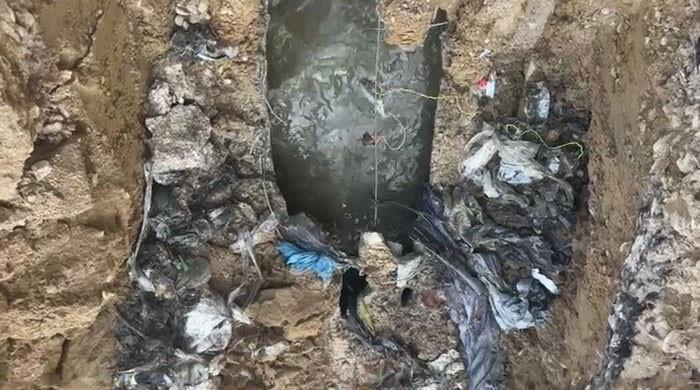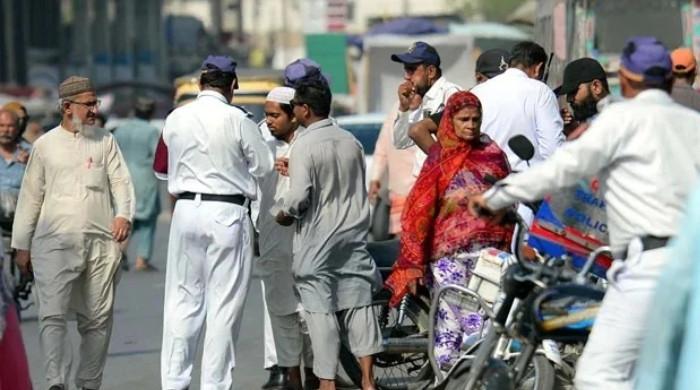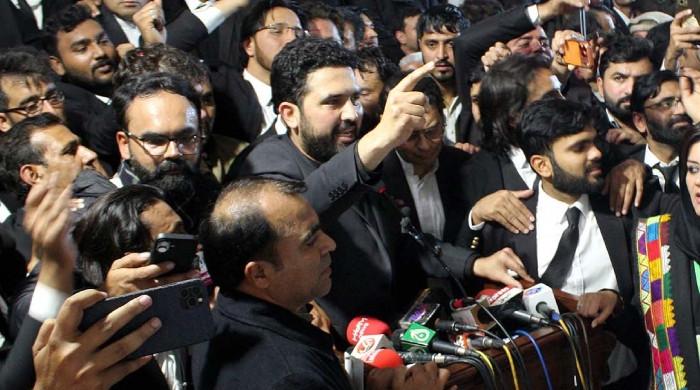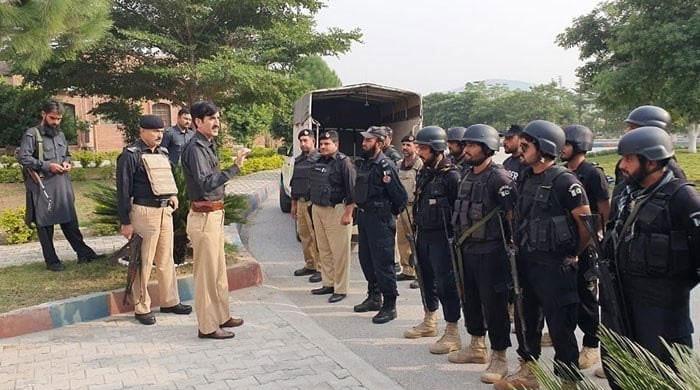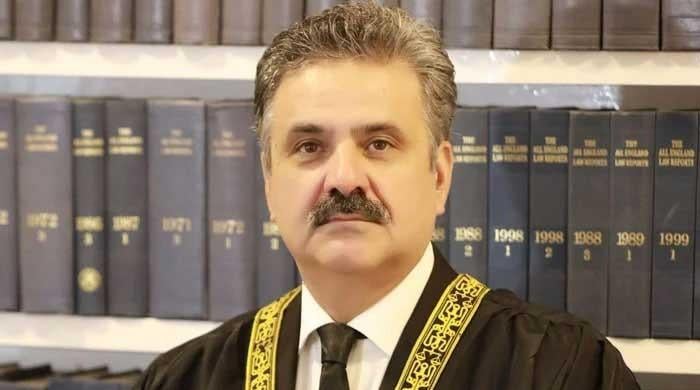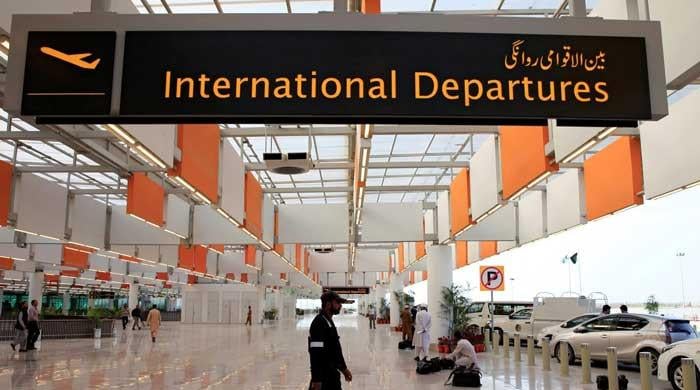Indus water dispute: First hearing begins at The Hague
India has boycotted the Court of Arbitration claiming that third party is not required
January 27, 2023
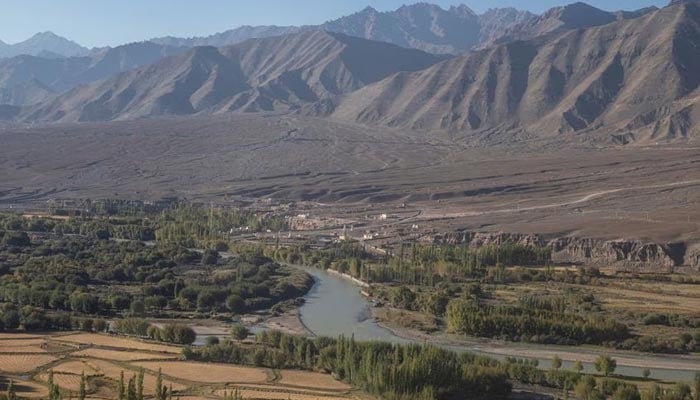
- Dispute pertains to Indian plants on Chenab and Jehlum.
- India boycotts court, rejecting third-party involvement.
- Court is competent to proceed ex parte and is doing so.
THE HAGUE: The first hearing in a dispute between Pakistan and India pursuant to the Indus Waters Treaty began on Friday at the Permanent Court of Arbitration after the Modi-led Indian government persistently refused to address the concerns Pakistan raised at the Permanent Indus Commission and during government-level talks.
The dispute brought before the court pertains to concerns raised by Pakistan over India’s construction of the 330 MW Kishenganga hydroelectric project on River Jhelum as well as Indian plans to construct the 850 MW Ratle Hydroelectric Project on River Chenab in the Indian Illegally Occupied Jammu and Kashmir (IIOJK).
As the hearing kicked off, the Office of the Attorney General took notice of news stories appearing in the Indian press regarding New Delhi's attempt at a unilateral modification of the Indus Waters Treaty.
“Such stories are misleading. The Treaty cannot be unilaterally modified. This is an attempt to divert attention from the ongoing proceedings at the Permanent Court of Arbitration under the Indus Waters Treaty,” the statement clarified.
“Pakistan initiated the legal proceeding on 19 August 2016 by requesting the establishment of the ad hoc Court of Arbitration pursuant to Article IX of the Indus Waters Treaty.”
Islamabad was compelled to take this step after its efforts to hold talks with India via other forums came to nought, the statement mentioned.
Pakistan — concerned that India's planned hydropower dams would cut flows on the river, which feeds 80% of its irrigated agriculture — first raised its concerns in the Permanent Indus Commission starting in 2006 for the Kishenganga project and 2012 for the Ratle project.
Then, it sought a resolution for the problems via government-level talks held in New Delhi in July 2015. However, India maintains that the construction of both projects is allowed by the treaty.
Thus, Islamabad was forced to initiate proceedings at the arbitration court.
Pakistan’s legal counsel is Sir Daniel Bethlehem, KC — a barrister from the UK — along with others.
The statement further added: “Pakistan’s delegation is led by Pakistan’s Agent to the Court, Mr. Ahmad Irfan Aslam, Additional Attorney-General and includes Mr. Hassan Nasir Jamy, Secretary, Ministry of Water Resources, and Syed Muhammad Mehar Ali Shah, Pakistan’s Commissioner for Indus Waters.”
It must be noted that the Indus Waters Treaty, signed in 1960, presents two recourses for the settlement of any disputes that may arise regarding the distribution of water from any of the rivers covered in the treaty.
The first is the Court of Arbitration which addresses legal, technical, and systemic issues. The second recourse is a neutral expert that addresses only technical issues.
Pakistan requested the establishment of the Court of Arbitration because of systemic questions requiring legal interpretation. Soon after, India responded by requesting the appointment of a neutral expert.
“Submission of a belated request for the resolution of disputes raised by Pakistan,” the statement said “was a demonstration of India’s characteristic bad faith.”
The two nuclear-armed neighbours have been arguing over hydroelectric projects on the shared Indus river and its tributaries for many years.
On 12 December 2016, the World Bank (WB) began to fear conflicting outcomes from the two parallel processes and consequently suspended the processes for both the establishment of the arbitration court and the appointment of the neutral expert.
It, instead, invited both countries to negotiate and agree on one forum. Pakistan and India could not agree on a mutually acceptable forum.
Eventually, after the passage of six years, during which India completed the construction of the Kishenganga project, the WB finally lifted the suspension and created the Court of Arbitration, and appointed a neutral expert.
Sean Murphy was appointed as the chairman of the Court of Arbitration (CoA) and Michel Lino as the neutral expert by the World Bank on October 17.
Pakistan believes that any risk of conflicting outcomes can be arrested through coordination and cooperation between the two fora. Therefore, Pakistan is, engaging with both fora.
In contrast, India has asked Pakistan to change the decades-old water-sharing agreement by barring third parties from intervening in disputes, an Indian government source said.
Resultantly, India has boycotted the Court of Arbitration despite the fact that the court is competent to proceed ex parte and is doing so.
According to Reuters, an Indian government source said on Friday New Dehli had served Pakistan a notice to modify the treaty and wanted to meet to start resolving the long-running dispute within 90 days.
It is, however, adamant that a third party is not required for arbitration.




